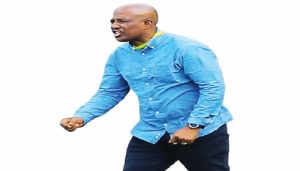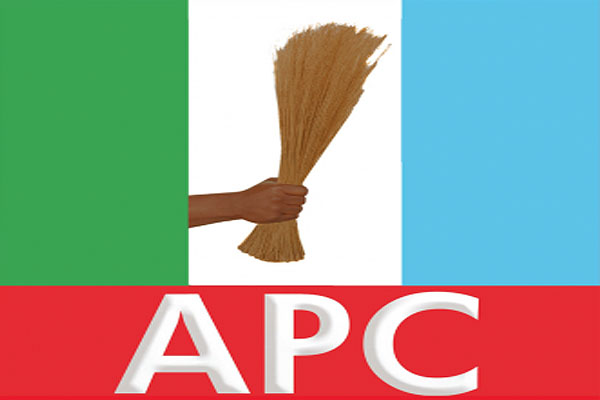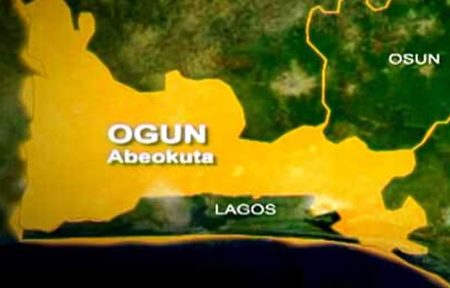The Shifting Sands of Edo State Politics: A Wave of Defections to the Ruling APC
The political landscape of Edo State, Nigeria, experienced a significant tremor on Friday as two suspended local government chairmen, Dickson Ahonsi of Owan West and Edosa Enowoghomenma of Ovia South West, along with thirteen of their councillors, abandoned the Peoples Democratic Party (PDP) to join the ranks of the ruling All Progressives Congress (APC). This dramatic shift in allegiance underscores the evolving dynamics of power within the state and signals a potential realignment of political forces. Ahonsi, accompanied by five councillors, was formally welcomed into the APC fold by members of the state executive committee in Benin City, the state capital. Enowoghomenma, along with eight councillors, including the Leader of the House, Nosakhare Edobor, was received by the APC chairman of Ovia South West Local Government, Emmanuel Ogbomo. The defections, marked by the symbolic presentation of brooms, the APC’s emblem, to the defecting chairmen and councillors, represent a significant boost for the APC and further consolidate its grip on the state’s political machinery.
The stated rationale for this political exodus revolves primarily around the performance and developmental initiatives of Governor Godwin Obaseki. Both Ahonsi and Enowoghomenma cited Obaseki’s achievements and future plans as the driving force behind their decision. Ahonsi specifically highlighted the governor’s strategic appointments and ongoing projects as evidence of his commitment to the state’s progress. He commended Obaseki’s approach to governance, contrasting it favorably with the previous administration. This endorsement, coming from a former member of the opposition, carries considerable weight and adds to the growing narrative of Obaseki’s effectiveness as governor. Enowoghomenma echoed these sentiments, emphasizing the importance of aligning with the governor and deputy governor, Dennis Idahosa, for the betterment of Ovia South West Local Government Area. He stressed the potential benefits of collaboration with the state’s leadership, highlighting Idahosa’s familiarity with the local government and his potential to contribute significantly to its development.
The APC’s reception of the defectors has been marked by enthusiasm and a spirit of inclusivity. Lawrence Okah, the Edo State Secretary of the APC, reiterated the party’s open-door policy, signaling its willingness to embrace more individuals who wish to join its ranks. This welcoming stance serves to strengthen the party’s image as a unifying force within the state and further broadens its support base. Ogbomo, in welcoming Enowoghomenma and his councillors, assured them that they would not regret their decision, pledging the party’s full support and protection. This assurance of integration and security is likely to encourage further defections from the PDP and other opposition parties, as politicians seek to align themselves with the dominant political force in the state.
The timing of these defections is particularly noteworthy, occurring shortly after the suspension of the chairmen from their respective positions. While the reasons for their suspensions remain unclear, the subsequent move to the APC suggests a potential link between the two events. It is possible that the suspensions precipitated the defections, prompting the chairmen to seek refuge within the ruling party. Alternatively, the defections may have been planned in advance, with the suspensions serving as a catalyst for their public announcement. Regardless of the precise sequence of events, the defections represent a significant setback for the PDP, which now faces the challenge of rebuilding its presence in these local government areas. The loss of these key figures weakens the party’s ability to effectively challenge the APC’s dominance in the state and could further erode its support base.
The defections of Ahonsi and Enowoghomenma, along with their councillors, represent a significant political development in Edo State. These moves solidify the APC’s control over local governance, weakening the opposition and further consolidating the ruling party’s power. The defectors’ stated reasons for joining the APC – primarily the perceived effectiveness of Governor Obaseki’s administration – provide a valuable insight into the current political climate of the state. The APC’s welcoming stance towards the new members reinforces its image as an inclusive and dominant force, while the PDP now faces the daunting task of regrouping and rebuilding its presence in the affected areas.
The long-term implications of these defections remain to be seen. However, they undoubtedly reshape the political landscape of Edo State, potentially impacting future elections and policy decisions. The defections not only boost the APC’s numerical strength but also signal a broader shift in political allegiances, with individuals and groups gravitating towards the perceived center of power. This dynamic could lead to further defections in the future, as politicians seek to align themselves with the dominant party. The PDP, on the other hand, must now devise a strategy to regain lost ground and present a compelling alternative to the APC’s vision for the state. The political battle lines have been redrawn, and the stage is set for a potentially intense period of political maneuvering and competition in Edo State.














